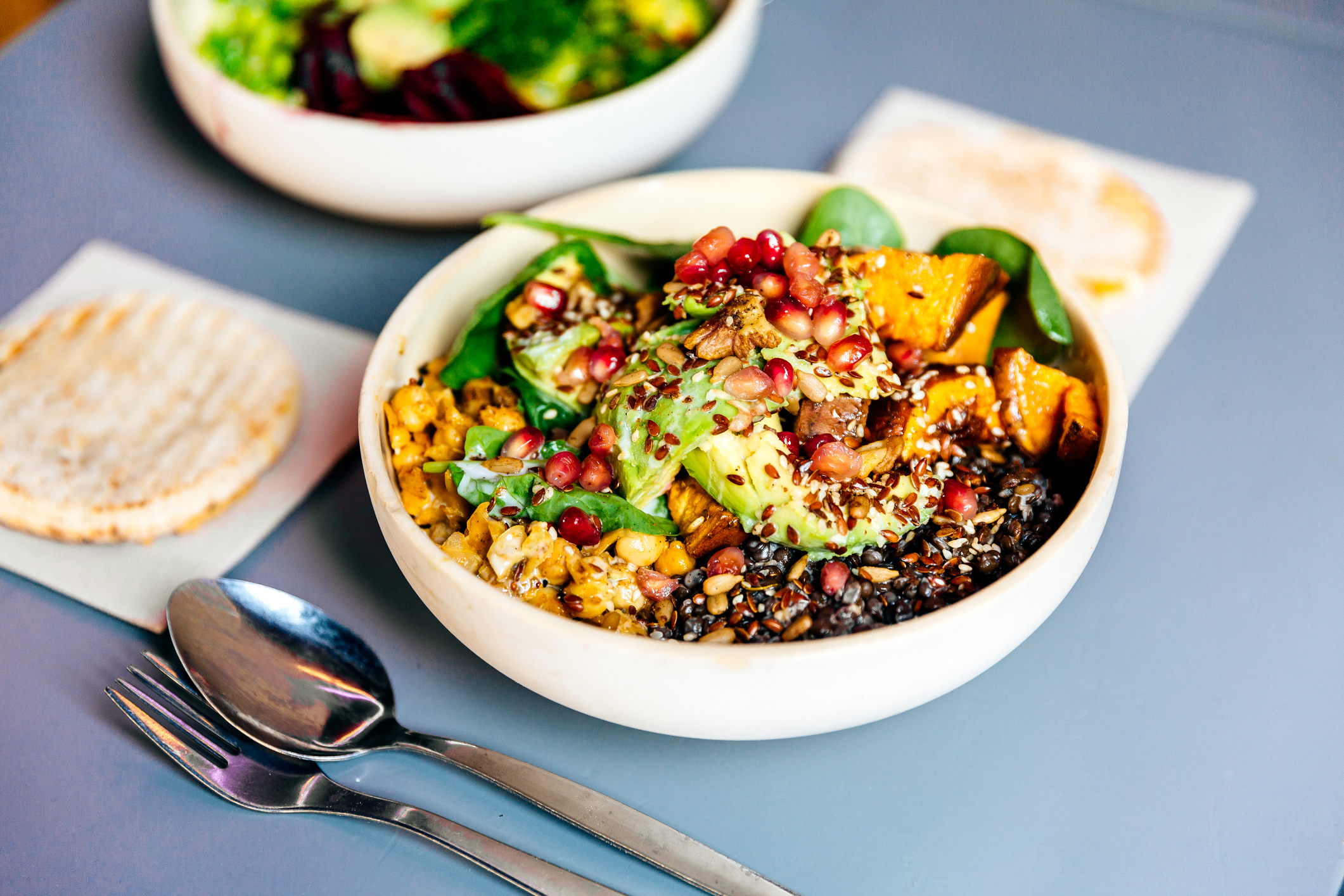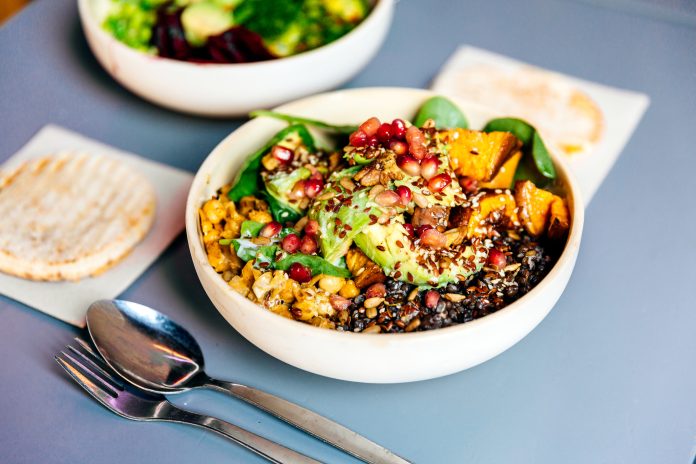When it comes to eating healthy, salad automatically pops up as one of the first foods in that category. filled with leafy greens and nutrient-packed veggies, you can get many of your daily requirements in just by eating a bowl of salad. Salads can be packed with a diverse array of colorful and filling ingredients like chickpeas, chicken, salmon, tofu and quinoa. With a well-balanced salad, you’ll feel truly satisfied, and it’s doing wonders for your brain and body. But just what happens to your body when you eat a salad every day? Read on to find out.
1. You might have lower blood pressure
Plant consumption is linked to lower blood pressure, and those who see a doctor for high blood pressure are often told by dietitians to increase veggie consumption and reduce meat intake. Just try to minimize sodium in the salad, which means less lunch meat and processed ingredients and more olive-based dressings, berries, unsalted seeds and nuts.
2. Muscle performance will improve
Salad powers up our muscles in a way that carbs can’t. Nutrients in greens and spinach help build strong bones. They also help mitochondria perform. Mitochondria are tiny structures within our cells that produce energy and power our muscles, making your workout a whole lot better. If you want to add more muscle mass, you can consider adding ingredients like salmon, eggs, shrimp, tofu, chickpeas and tuna to your salad.

3. Better digestion
Salad ingredients are often high in fiber, and foods like cilantro, broccoli, carrots, and radishes contain healthy antioxidants, which can help balance out gut toxins. Salads can provide you were vitamins that fuel digestive cells — especially ones with probiotic ingredients such as aged cheese, apple cider vinegar or pickled ingredients. It can also help your bowel movements be more regular.
4. It may make you live longer
Since no single veggie or fruit can provide all the nutrients our body needs, a salad mixing a variety of produce can be a fantastic solution. If you want to extend the longevity of your life, a variety of studies suggest that veggies can work to prevent premature death and can also reduce the risks of heart disease, cancer and cardiovascular disease.

5. You’ll keep your brain young
If you want to keep that brain young and healthy, eat more salad! According to some studies, it can improve the memory of elderly people and amounts as small as half a cup can slow cognitive decline. That means that you can use a half cup of salad as a topper on sandwiches, rice bowls and more. Maintain that memory function and eat your greens.

6. A healthier heart
Whether heart disease runs in your family or you just want to keep your cardiovascular health in tip-top shape, salad can have your back in that regard — specifically romaine lettuce. This crunchy green contains fiber and folate, which are both essential to protecting the heart muscle. High amounts of folate can actually help prevent strokes and other cardiovascular issues. Fish like salmon and tuna are also heart-healthy, as are chia seeds and legumes.
7. You may have some heartburn
While there are tons of health benefits that occur from eating salad every day, pouring too much vinegar-based dressing on your salad can potentially lead to heartburn, so moderation is key if you don’t want to trigger acid reflex. This is apparently due to the acid in vinaigrette and vinegar-based dressings. Remember that the more salad you eat, the more dressing you put on, so while you may be doing good for your body with all those greens, it can also aggravate heartburn. The same goes for highly acidic ingredients like cheese and tomatoes.

8. You’ll have more energy
The more refined, white flour and processed food you consume, the more tired and heavy your body will feel. But if you’re staying full of satiating, nutrient-packed salads with non-starchy veggies, lean protein and healthy fat, you’re eating a meal that delivers a steady supply of energy to your body rather than experiencing the energy crash that can happen with less healthy meals. To eat a low-glycemic salad that keeps your energy even-keeled, be sure to include foods like avocados, almonds and pecans in moderation.

9. Improved mental health
We all feel stressed out, and in this day and age, that’s totally normal. If you’re looking to reduce those stress levels, your diet is a great way to do that. Vitamins, fats, proteins and antioxidants all work to form balancing hormones in the body. Protein is also essential to building neurotransmitters, which are known to keep people feeling calmer and more focused throughout their day.
10. It can lower blood sugar levels
Salad is a must-have for diabetics as it can help regular your blood sugar levels. Just as long as the salad is free from creamy dressings, salty cheese, candied nuts and fried croutons, it’s a great source of nutrition for those monitoring blood sugar. With homemade olive-based dressings, proteins and fresh or roasted veggies combined with low grains, you’re opting for a much better alternative than high-sugar meal options like fast food.













